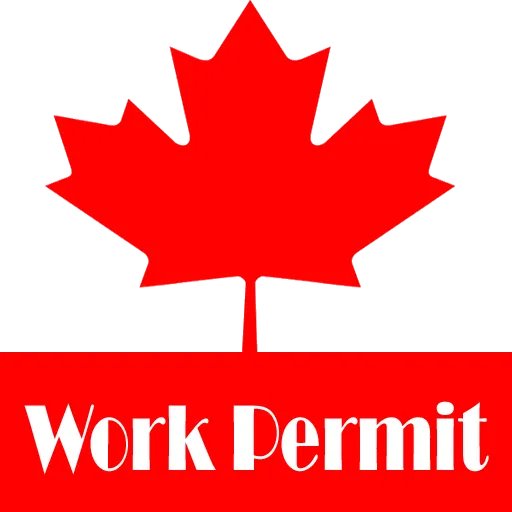Work Permit Visa
SJI Canada Immigration Consultant is a professional firm dedicated to assisting individuals and families with their immigration needs to Canada. The consultancy provides expert advice and personalized services to help clients navigate the complex Canadian immigration system.

Most foreign workers who want to work in Canada must obtain a Labour Market Impact Assessment (LMIA). This essential document, issued by Employment and Social Development Canada (ESDC), permits Canadian companies to hire foreign workers to address labor shortages in specific occupations. This guide will explore the various types of LMIA, their requirements, and the application process in detail.
Types of Work Permits:
Employer-Specific Work Permit: Allows you to work according to the conditions on your permit, which include-
The name of the specific employer you can work for
How long you can work
The location where you can work (if applicable)
Open Work Permit: Allows you to work for any employer in Canada, except for employers:
Who are listed as ineligible on the list of employers who have failed to comply with the conditions
Who regularly offer striptease, erotic dance, escort services, or erotic massages
Eligibility Requirements:
To be eligible for a work permit, you must:
Prove to an officer that you will leave Canada when your work permit expires.
Show that you have enough money to take care of yourself and your family members during your stay in Canada and to return home.
Obey the law and have no record of criminal activity (you may have to provide a police clearance certificate).
Not be a danger to Canada’s security.
Be in good health and have a medical exam, if needed.
Not plan to work for an employer on the list of ineligible employers.
Not plan to work for an employer who regularly offers striptease, erotic dance, escort services, or erotic massages.
Give the officer any other documents they ask for to prove you can enter the country.
How to Apply:
Job Offer and LMIA
Obtain a job offer from a Canadian employer.
Ensure the employer secures an LMIA if required.
Work Permit Application
Apply online or on paper for a work permit.
Provide necessary documents, including the job offer, LMIA (if applicable), proof of identity, and proof of qualifications.
Express Entry
Create an online profile.
Submit an Expression of Interest (EOI) and wait for an ITA.
After receiving an ITA, submit a complete application for permanent residency.
Provincial Nominee Program
Apply to the province/territory where you want to settle.
Once nominated, apply for permanent residency through the federal government.
Requirements for LMIA
To obtain an LMIA, employers must meet several requirements, including:
Advertising the Job: Employers must demonstrate efforts to recruit Canadian citizens or permanent residents before hiring a foreign worker. This usually involves advertising the job in multiple locations.
Job Offer: The job offer must be genuine, and the employment terms must meet Canadian standards, including wage rates and working conditions.
Transition Plan: For high-wage positions, employers may need to submit a transition plan outlining their strategy to reduce their reliance on foreign workers over time.
Proof of Business Legitimacy: Employers must prove that their business is legally operating and financially able to meet its obligations.
To obtain a Canada Work Visa, applicants generally need a job offer from a Canadian employer, a positive LMIA (if applicable), and must meet specific eligibility criteria, such as proving they will leave Canada at the end of their authorized stay and demonstrating sufficient financial means.
SJI Canada Immigration Consultant provides comprehensive support throughout the work visa application process, ensuring that clients understand the requirements and have the best possible chance of success in their application.
SJI Canada Immigration Consultant stands out because of their personalized approach and in-depth knowledge of Canadian immigration laws. They offer tailored strategies based on your specific circumstances, ensuring that you receive guidance that aligns with your unique needs and goals. Their commitment to staying updated with the latest immigration policies and their track record of successful case resolutions further differentiate them from other consultants.
Why Choose SJI Canada Immigration Consultant
Choosing SJI Canada Immigration Consultant for your work permit in Canada ensures a seamless and successful immigration process. With their extensive expertise in Canadian immigration laws and regulations, SJI offers personalized services tailored to your specific needs and circumstances. Their team of dedicated professionals is committed to providing accurate, up-to-date advice and guidance, helping you navigate the complexities of the application process with confidence. SJI’s proven track record of successful applications and their comprehensive understanding of the Canadian job market make them a reliable partner in achieving your work permit goals. By choosing SJI, you gain access to their deep industry knowledge, meticulous attention to detail, and unwavering support, ensuring that your transition to working in Canada is smooth and stress-free.
FREQUENTLY ASKED QUESTIONS
What is a Work Permit visa in Canada?
A Work Permit visa in Canada allows foreign nationals to work legally in the country for a specific employer and duration as outlined in their job offer. This visa is typically tied to an employment contract and may require a Labour Market Impact Assessment (LMIA) to demonstrate that no Canadian worker is available for the position. It is an essential pathway for those looking to gain Canadian work experience, and it can often be a stepping stone towards permanent residency.
How do you get a Labour Market Impact Assessment (LMIA)?
To obtain a Labour Market Impact Assessment (LMIA), a Canadian employer must demonstrate that hiring a foreign worker is necessary due to a lack of available Canadian citizens or permanent residents for the position. The process begins with the employer advertising the job locally to prove that no qualified Canadians are available to fill the role. Once this is established, the employer submits an LMIA application to Employment and Social Development Canada (ESDC), providing detailed information about the job offer, the recruitment efforts made, and the reasons a foreign worker is needed. The ESDC then assesses the application to ensure that hiring a foreign worker will have a positive or neutral impact on the Canadian labor market. If approved, the employer receives a positive LMIA, which the foreign worker can then use to apply for a Work Permit.
Who is eligible to apply for a Work Permit visa in Canada?
Eligibility to apply for a Work Permit visa in Canada typically requires having a valid job offer from a Canadian employer. The employer may need to obtain a Labour Market Impact Assessment (LMIA) to prove that no Canadian worker is available for the position. Additionally, the applicant must meet specific qualifications related to the job and ensure that they can fulfill the role. Some work permits, such as open work permits, do not require a job offer or an LMIA but are available under specific conditions, such as for spouses of skilled workers or international students.
How long does it take to process a Work Permit visa application?
Processing times vary depending on the applicant's country of residence, the type of work permit, and other factors, typically ranging from a few weeks to several months.
Can I bring my family with me if I have a Work Permit visa?
Yes, you can generally bring your family with you if you have a Work Permit visa for Canada. Your spouse or common-law partner and dependent children can accompany you during your stay. Your spouse may be eligible for an open work permit, allowing them to work while you're in Canada, and your children can attend school. However, specific requirements and processes must be met, so it's essential to review the details and ensure all necessary documentation is provided.
Can I switch employers with a Work Permit visa?
Most work permits are employer-specific, meaning you need to apply for a new work permit if you want to change employers. Some permits, like the open work permit, allow for more flexibility.
What types of jobs qualify for a Work Permit visa?
A wide range of jobs across various industries qualify for a Work Permit visa in Canada. These can include positions in sectors such as technology, healthcare, construction, education, hospitality, and agriculture, among others. The key requirement is that the Canadian employer must meet the necessary conditions, such as obtaining a Labour Market Impact Assessment (LMIA) if required, to demonstrate that no Canadian worker is available to fill the position. Additionally, certain international agreements, like NAFTA or CETA, allow for specific professions to bypass the LMIA requirement, facilitating easier access to work permits for qualified candidates.
Do I need a job offer to apply for a Work Permit visa in Canada?
In most cases, you do need a job offer to apply for a Work Permit visa in Canada. This job offer must typically come from a Canadian employer and may require an LMIA (Labour Market Impact Assessment) to demonstrate that no Canadian workers are available for the position. However, there are some exceptions, such as open work permits, which do not require a specific job offer and allow you to work for any employer in Canada.
What is a Post Graduation Work Permit?
A Post-Graduation Work Permit (PGWP) allows international students who have completed a designated program of study at a recognized Canadian post-secondary institution to work in Canada. The permit enables graduates to gain Canadian work experience, which can be crucial for transitioning to permanent residency. The duration of the work permit depends on the length of the study program completed, with permits typically issued for up to three years. The PGWP offers graduates an opportunity to apply their skills in the Canadian job market and enhance their future immigration prospects.
Can I apply for permanent residency while on a Work Permit visa?
Yes, many foreign workers use their Canadian work experience to qualify for permanent residency through programs like the Canadian Experience Class (CEC) under Express Entry.

OUR SIMPLE AND EASY PROCESS


CONSULTATION
Book an Appointment for a detailed assessment and consultation with a licensed Immigration Consultant.


REVIEW AND FOLLOW CLIENT FOLLOW UP
Based on your consultation, decided how you want to proceed and ask any additional questions you have.


PREPARE AND SUBMIT APPLICATION
Once you are ready to proceed, we will prepare your complete application and submit it to IRCC.


Patiently Wait for the Result
hard to guarantee a positive result at 100%.
We kindly ask that you book your consultation in advance, as we are unable to accommodate walk-in appointments.
Thank you for your understanding.
© 2024 SJI Canada Immigration. All Rights Reserved

